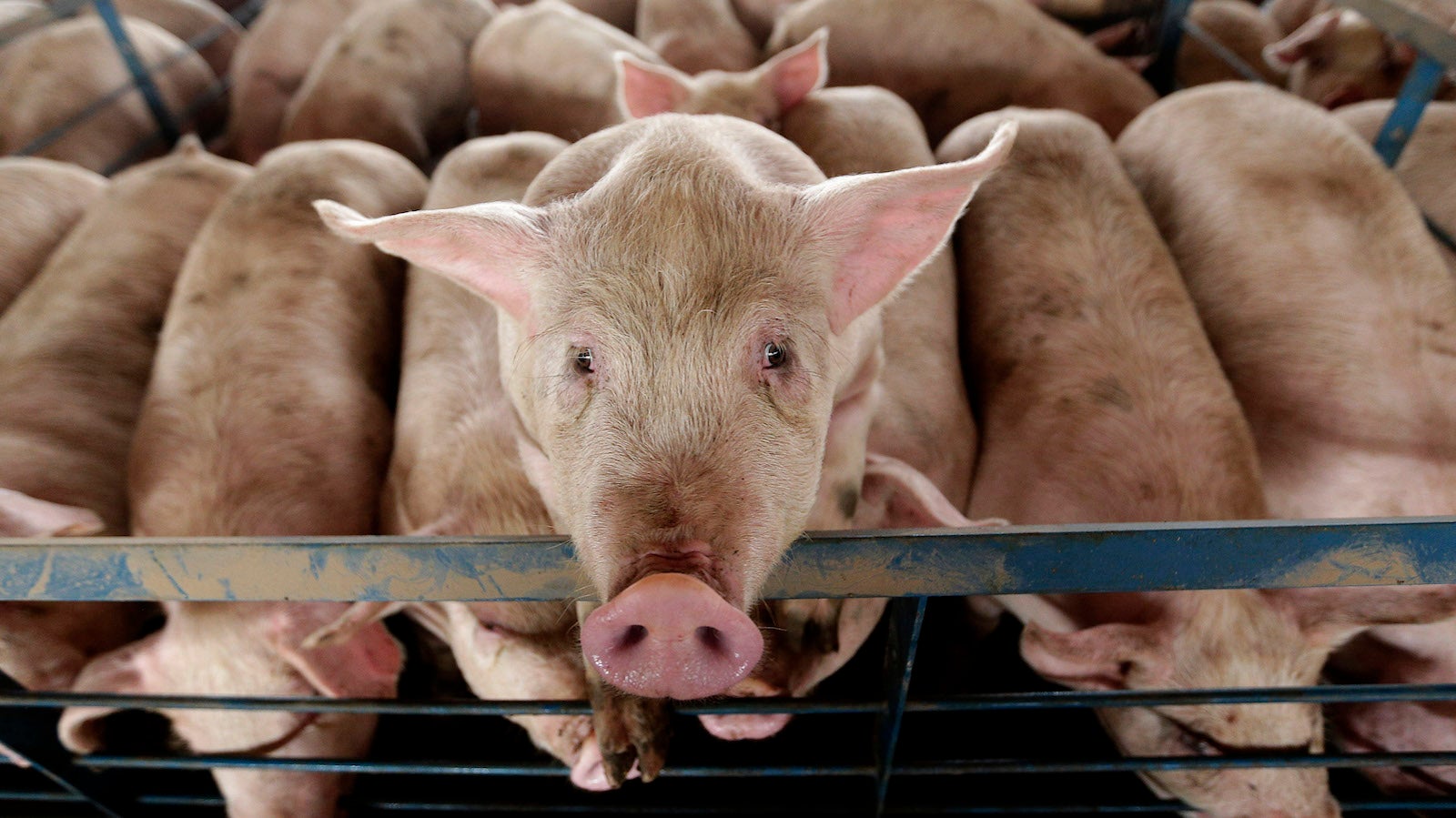US researchers are trying to grow human organs inside pigs and sheep
US researchers think they can grow human tissue inside of farm animals, but should they?


US researchers think they can grow human tissue inside of farm animals, but should they?
Scientists in California and Minnesota are experimenting with creating pig-human and sheep-human chimeras—animals grown with genetic material from different species in a single embryo—in an effort to generate human organs, the MIT Technology Review reports. The organs could be used for transplants, drug testing and other research.
By injecting stem cells—made from human blood or skin cells—into days-old animal embryos and gestating them in female livestock, the researchers hope to understand the conditions needed to grow human organs in these animals. The idea is to genetically modify the animal’s DNA so that it’s unable to grow certain organs, prompting the human cells complete the task.
Back in 2010, Japanese stem-cell biologist Hiromitsu Nakauchi, now at Stanford University, successfully grew a rat pancreas inside of a mouse using a similar method, but the two species have a closer genetic makeup than pigs and humans.
So far, there have been about 20 pregnancies of pig-human or sheep-human chimeras in the US over the last year, the MIT Technology Review estimates, based on interviews with three research teams in the US that performed the experiments.
But none of those pregnancies were carried to term because of the ethical controversy around the experiments, including concerns over what could be created. Think H.G. Wells’ science-fiction classic The Island of Dr. Moreau, in which a vivisectionist creates animal-human hybrids capable of higher thinking.
“We are not near the island of Dr. Moreau, but science moves fast,” National Institutes of Health ethicist David Resnik reportedly said during a November workshop about animals made with human cells. “The specter of an intelligent mouse stuck in a laboratory somewhere screaming ‘I want to get out’ would be very troubling to people.”
Animal rights groups have called for stronger oversight over federally-funded human-animal chimera research, and some religious groups have condemned the practice.
In September, the US National Institutes of Health took a stand against animal-human chimeras, cutting off funding for research that introduces human pluripotent stem cells, capable of developing into almost any type cell or tissue, into early animal embryos.
However, researchers have received funding from other sources in the past, including the California Institute for Regenerative Medicine.